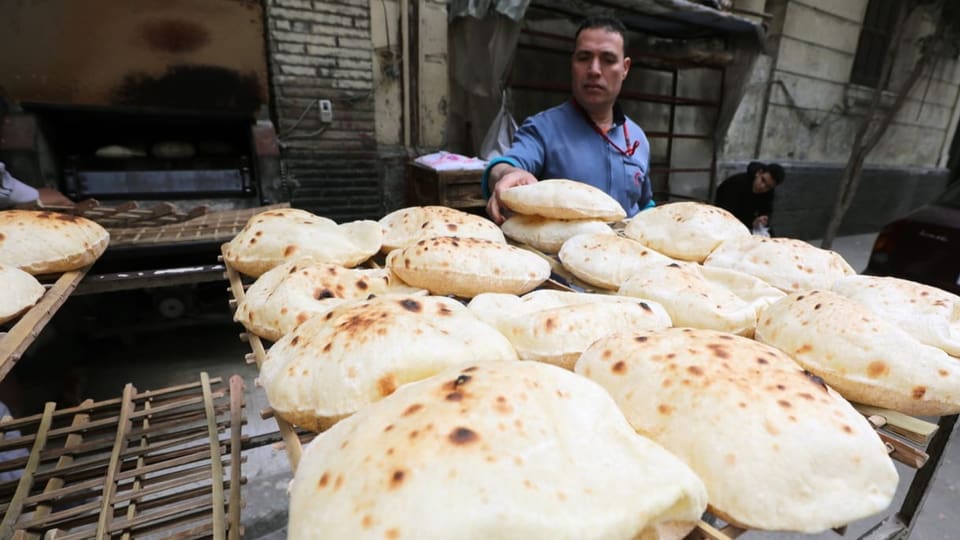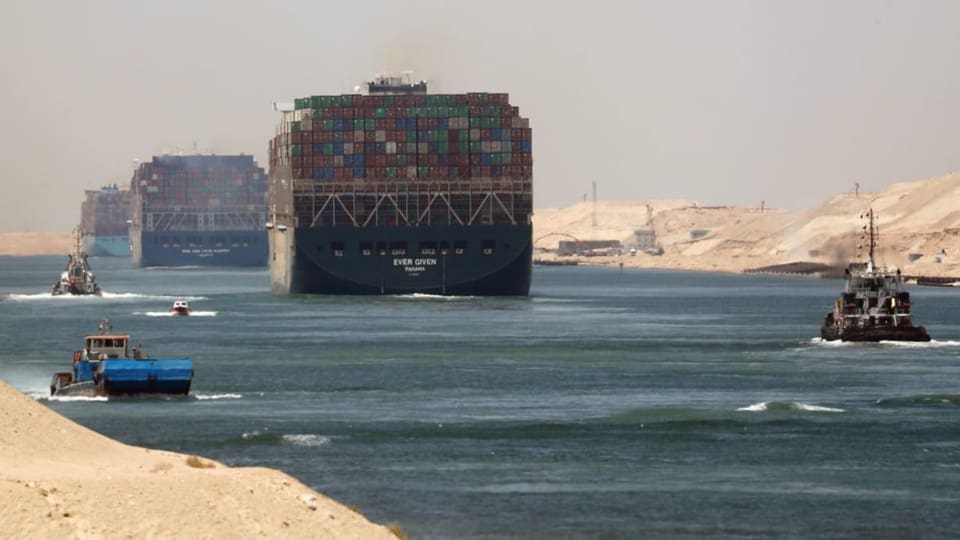contents
Inflation is high and the government is looking for foreign exchange. ARD correspondent Allmeling describes the situation in the country.
Egypt is in a severe economic crisis, some can hardly afford enough food. The Egyptian pound is constantly losing value, inflation is high. The pressure on the government of President Abdel Fattah al-Sisi is so strong that the highly profitable Suez Canal is apparently to be opened up to foreign investors.
SRF News: What is the current situation in Egypt?
Anne Allmeling: It is very difficult. Above all, the price increases are enormous – many people hardly have enough money for basic groceries. In the supermarket around the corner, a kilogram of rice cost the equivalent of around 50 centimes in October – now it’s almost 2.50 francs. People simply cannot afford a fivefold increase in food prices.
Will grain come back from Ukraine and Russia? How expensive is the wheat?
Wheat prices have risen massively – and the breads have become massively smaller. Bread prices have doubled or tripled, and that for smaller loaves. However, two thirds of Egyptians receive subsidized, very cheap bread.
The government knows it would risk unrest if bread subsidies were removed.
There is currently no indication that this is about to change. The government knows that in this case it would risk unrest. In the medium term, she is trying to promote the cultivation of wheat in her own country and to connect suppliers other than Ukraine and Russia.

Legend:
Food has become massively more expensive in Egypt, including bread. After all, two-thirds of the country’s population receives heavily subsidized bread.
Keystone/Khaled Elfiqi
How about meat? Apparently there is a lack of soy and corn to fatten the chickens.
In fact, this fodder is missing – the cheap supplies from Ukraine have broken away and there is a lack of money to get the fodder from elsewhere.
Huge amounts of feed and food are said to have accumulated in the Egyptian ports, which cannot be paid for and therefore cannot be unloaded.
There is talk of $14 billion worth of imported goods being blocked. Meanwhile, the government was able to raise $6 billion to unblock some of the merchandise. However, it is unclear where this money will come from.

Legend:
The Suez Canal – it connects the Red Sea with the Mediterranean and thus in shipping traffic southern Europe with Asia – is a kind of sacred cow in Egypt and is state-owned. International investors could possibly step in soon because the government needs foreign currency.
Reuters/Amr Abdallah Dalsh
The government has set up a fund through which foreign investors can also invest in the Suez Canal. Was that done to get foreign exchange?
Nobody really understands what the government’s plans and goals are – whether it’s about the canal itself or investment zones around the canal. The announcement may also be a test balloon to see how great the interest is.
The Gulf States have a fundamental strategic interest in ports in the region.
The state-owned Suez Canal is a sacred cow in Egypt. Nevertheless, the government is now trying to counteract the great financial pressure by privatizing companies, creating new investment zones and privatizing ports or terminals. Share sales, for example to the Gulf States, are also possible. They have a fundamental strategic interest in the ports in the region.
How is the population reacting to the difficult situation?
That’s not easy to judge – there are no opinion polls. However, there are many expressions of dissatisfaction on social media. Above all, the rising prices are also an issue, be it in the taxi or when shopping. That keeps people busy. And you can tell that there is a lot of pressure in the boiler.
The conversation was conducted by Roger Brändlin.
